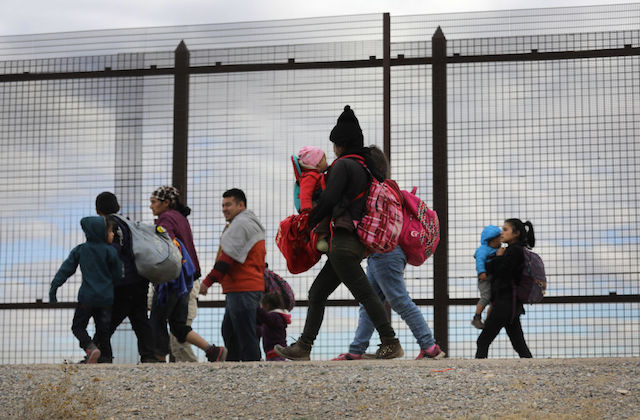Asylum Seekers Face Danger in Mexico as U.S. Begins Deportations

The Trump administration is potentially exposing migrants to grave risks with its new policy of sending asylum-seeking migrants to Mexico while they wait for a hearing in U.S. courts—a program now being referred to as the Migration Protection Protocols.
Some migrants run the risk of "kidnapping or death" once they are deported to Mexican border cities, according to a report in Reuters. The city of Reynosa in the Mexican state of Tamaulipas, for example, is often where cartel members battle to the death over their stake in the lucrative drug game. According to Reuters, "civilians are often caught in the crossfire." Reynosa also houses the "busiest crossing point along the northern Mexican border for migrants seeking asylum in the United States."
As Colorlines previously reported, the Trump administration first announced this new border policy in December 2018. And while the initial deportation of an asylum-seeker to Mexico took place Tijuana, which is on the west coast of Mexico and at the opposite end of the border from Reynosa, the Department of Homeland Security (DHS) announced plans to expand the program to Tamaulipas and other legal ports of entry. "We’re returning them to where they came in," DHS spokesperson Katie Waldman told Reuters. Waldman also downplayed the threats of violence migrants could face in treacherous border towns. "That’s no more dangerous than some of these violent parts of the United States, like Chicago," she said.
The challenge is that it's difficult to gauge the level of deadly crimes taking place in Tamaulipas. According to Reuters, "around 90 percent of crimes went unreported last year" in the area. And the available data, which, similar to Chicago, shows "a homicide rate of about 24 murders per 100,000 residents," does not include unsolved disappearances.
Perhaps more telling, the U.S. Department of State has issued a Level 4: Do Not Travel warning for Tamaulipas. This level is defined as "the highest advisory level due to greater likelihood of life-threatening risks," and is typically reserved for active war zones.
Reynosa's mayor, Maki Ortiz, tells Reuters it will be almost impossible to to protect Central American migrants in his troubled city. "We don't have the capacity. We don't have the resources, the infrastructure or the budget for them," he warned.
